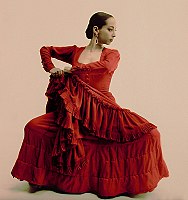
Photo from wikipedia
The literature on authenticity of cultural production has systematically examined the perceived authenticity of both the producer and the cultural product but not of the creative process. This study aims… Click to show full abstract
The literature on authenticity of cultural production has systematically examined the perceived authenticity of both the producer and the cultural product but not of the creative process. This study aims to address this lacuna, adopting Carroll and Wheaton's typology of type and moral authenticity to examine how contemporary dance choreographers construct authenticity during the creation of a new choreography. Our analysis of data from 23 contemporary dance companies reveals that the two meanings of authenticity dynamically reconstitute one another in the creative process. First, choreographers construct moral authenticity through transformation of form, deconstructing established artistic dance forms and introducing new movements from a bricolage of techniques. Second, they construct type authenticity through wrapping expression, facilitating the deconstruction of the values attached to the bricolage of techniques into artistic dance aesthetics. Finally, choreographers evoke both moral and type authenticity through a creative process of reconstruction. Our noteworthy finding reveals how the construction of authenticity in the process of creating a new choreography, and the dynamics between the two meanings of authenticity, serve significantly as a means of communication among the involved actors, thereby enabling the creative process.
Journal Title: Organization Science
Year Published: 2020
Link to full text (if available)
Share on Social Media: Sign Up to like & get
recommendations!